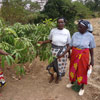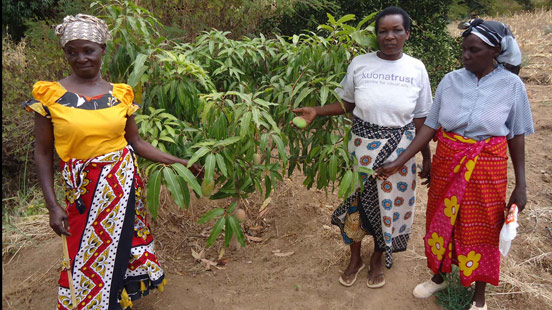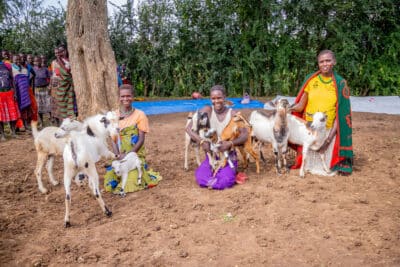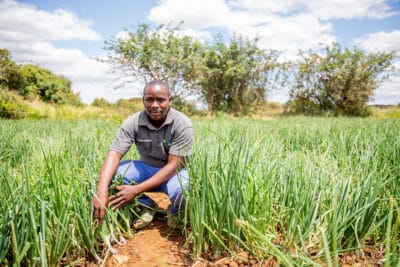News
13 December 2012
Mango juicing bears fruit


Farm Africa is helping hundreds of women mango farmers in Kitui, eastern Kenya, to transform themselves from subsistence farmers into the rural entrepreneurs of the future.
Funding from Farm Africa’s Maendeleo Agricultural Enterprise Fund (MAEF) has provided the women with improved new mango stock that provides far better quality mangoes than can be grown using traditional mango varieties, which are small and fruit only once a year.
The new varieties are already making a difference. They fruit in both November and March so farmers are no longer left with little option but to sell their mangoes to market in one go. In the past this drove down market prices and led to huge wastage with unsold mangoes left to rot.
Mango trees
The women farmers are seeing huge benefits. 62 women from two farmers’ groups in Kamale and Kyanika have had advanced training in how to establish nursery beds. In turn these farmers are training 198 women farmers at weekly meetings. At just one demonstration site alone a staggering 1,000 mango tree seedlings have been planted. And throughout the project as a whole 2,872 trees grown from the improved variety have been planted. From planting it takes about two years for the trees to fruit.
Mango juice business
The project is helping the women in more ways than simply helping them to grow better quality mangos. Our fund is also investing in machinery and training that will enable the women to turn their orchards into flourishing businesses capable of providing them with a steady income.
The machinery comes in the form of a juice extractor which has already produced more than 1,500 litres of fresh mango juice. With both healthy new mangoes and a new business vision, there is no stopping the women turn their hard work into a long-term business. They are eagerly drawing up business plans and will soon visit a mango juice processing plant in Malindi where they will learn more about forming co-operatives, cost bases and grading mango juices.
Learn more about our mango farming project.
To help fund this and our other project work, please make a donation.




